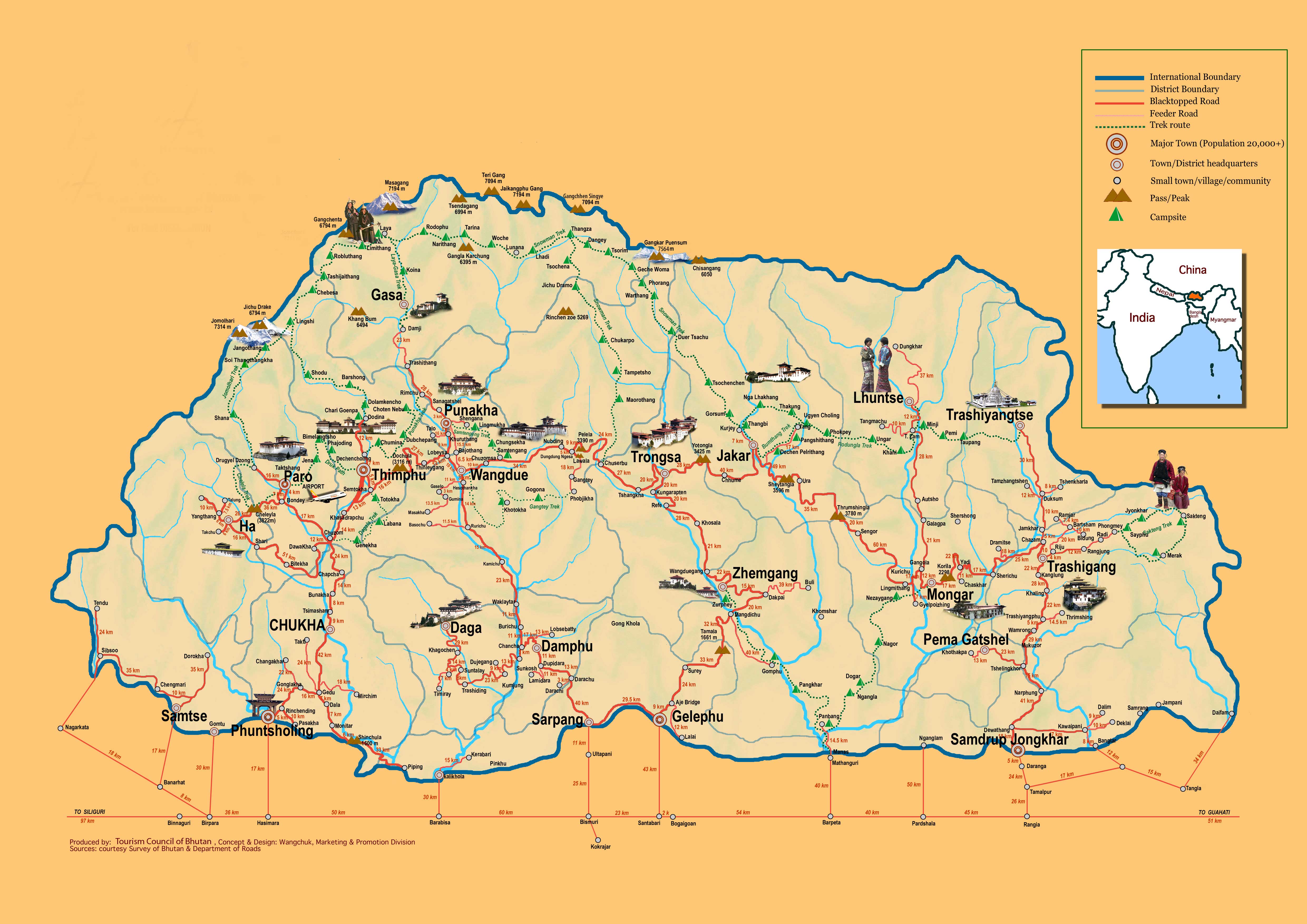

Cultural Tours : Bhutan remained in isolation for centuries and little (outside of Bhutan) is known about its ancient history. The earliest recorded history dates back to the 7th century monasteries, Kyichu in Paro and Jambay Lhakhang in Bumthang, the oldest and one of the most sacred temples in Bhutan built by the Tibetan King Songtsen Gyampo.
The defining moment in Bhutanese history was when Guru Padmasambhava, as the legend goes, came flying on the back of a tigress to Taktsang (popularly known as Tiger’s Nest) in Paro in the 8th century. Since then, Bhutan’s very existence has remained inseparable from Buddhism. However, Bhutan was a conglomeration of many valley kingdoms ruled by petty lords and noblemen.
Many centuries later in 1616, a Tibetan saint, Ngawang Namgyel, later granted the title Zhabdrung Rinpoche, came to Bhutan. The Zhabdrung founded the modern Bhutanese state and began the most dynamic era in the history of Bhutan. He unified the country and established a theocracy based on Buddhist principles and values. He introduced the dual system of governance, a Druk Desi, the temporal ruler as the civil administrator and a Je Khenpo, a spiritual leader and Chief Abbot of the central monastic body (peer to the Dalai Lama), both under his authority.
The Zhabdrung was not only a great spiritual man and statesman, but also a great architect and a builder, who left his indelible legacy in the form of many dzongs (fortresses), monasteries and religious institutions.
The Zhabdrung’s dual system of government, ruled by 54 Desis and 60 Je Khenpos, steered Bhutan from 1651 until the rise of the Wangchuck dynasty and establishment of a monarchy by the first King Sir Ugyen Wangchuck in 1907.
The second King Jigme Wangchuck ruled from 1926 till 1952. The third King Jigme Dorji Wangchuck, is known as the father of modern Bhutan and ruled from 1952 to 1972. The fourth King, His Majesty Jigme Singye Wangchuck ascended the Golden Throne in 1972 and in 2006 abdicated the throne to enable his son to introduce democracy to the country. In 2008, His Majesty Jigme Khesar Namgyel Wangchuck became the fifth Druk Gyalpo (king) and Bhutan’s first parliamentary election was held. Sign up today to join Cultural Tours to exotic Himalayan Kingdom of Bhutan.
Bhutan is a deeply spiritual nation and Buddhism has flourished; it’s known as the last stronghold of Vajrayana Buddhism. The Drukpa Kagyu, a sect of Mahayana Buddhism, is the state religion though other religions are also practiced.
The influence of Buddhism on culture and everyday life is clearly seen. Every village has its own community lhakhang (monastery) and every house has its own private chapel. Besides the pervasive prayer flags, the rugged landscape is dotted with over 10,000 stupas and 2,000 monasteries, indicating the country’s spiritual depth.
With all the above details makes your Bhutan Cultural Tours more meaningful and enjoyable.
